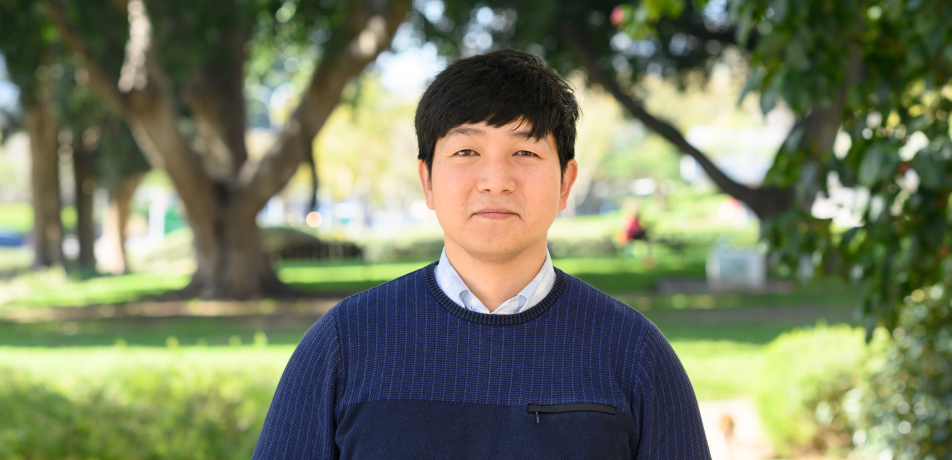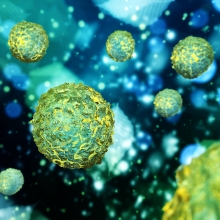9 years, 3 degrees, and a family
Briefs

Dr. Jung-Seok Kim came to the Weizmann Institute in 2014 to continue his studiesin developmental biology, butbecame fascinated by immunology and is now a postdoc in the lab of Prof. Steffen Jung.
Few foreign students wind up spending nearly a decade in the same lab as they progress through their MSc, PhD, and postdoctoral studies.
Dr. Kim is the exception. Dr. Kim earned his BSc in developmental biology at Handong Global University in South Korea, then applied to the MSc program at the Weizmann Institute of Science on the recommendation of a Weizmann alumnus.
When he arrived on campus in 2014, Dr. Kim intended to work in a lab researching developmental biology, but found himself fascinated by immunology, which he calls a “fast-growing field.” He did the second rotation of his MSc in Prof. Jung’s lab in what was then the Department of Immunology, then decided to stay on for his PhD and postdoctorate. Dr. Kim studies macrophages— “resident” immune cells in each organ that serve as the first line of defense for those tissues—and their role in autoimmune diseases of the central nervous system, such as multiple sclerosis (MS).
The blood-brain barrier
While most of the research into the complex series of processes leading to the onset of MS has focused on microglia―resident immune cells unique to the brain, Dr. Kim and his colleagues are working to determine how macrophages contribute to the integrity of the blood-brain barrier. Under normal circumstances, any immune cells other than microglia are unable to cross the barrier. However, in some conditions, immune cells do penetrate the blood-brain barrier by mistake and then attack oligodendrocytes, specialized neural cells that form the myelin sheath around brain cell extensions known as axons.
In MS, oligodendrocytic cells are damaged, along with the myelin, thus impairing each neuron’s ability to communicate with its neighbors and leading to the gradual paralysis associated with the disease.
Using mouse brain models, the team is attempting to target the populations of microglia and macrophages separately, and clarify their different functions within the brain. Their most recent findings have been published in the European Journal of Immunology, Immunity, and Nature Immunology. Despite the political and security challenges Israel has faced over the past nine years, Dr. Kim says he feels safe on the Weizmann campus.
He follows Israeli and Middle East politics and says he has learned “enough Hebrew to survive.” Dr. Kim arrived in Israel as a single graduate student. He is now married and the father of a three-year-old boy. His wife, also Korean, used to work for a government company that matches Israeli businesses to the Korean industry. Their son is growing up at the Institute and attends nursery school on campus with other Weizmann kids.
According to Dr. Kim, one of the things he enjoys most about the Weizmann Institute is that, unlike in university culture in east Asia, there is “no hierarchy.” “That’s not good for science,” he says. “Here at Weizmann, there is free discussion. PIs listen to students.”








